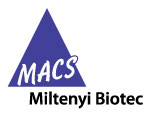
In Adoptive T Cell Therapy, investigators from academia and industry present a fascinating range of approaches focusing in particular on optimization of specificity together with avoidance of off-site toxicity. This track presents new
developments for attacking solid tumours, the potential for non-personalized therapies, and efforts to automate and simplify the process. Data from bench to bedside including preclinical models, translational studies and successes in the clinic will
be included.
Final Agenda
Monday, 19 March
08:00 Registration & Morning Coffee
 09:00 Chairperson’s Opening Remarks
09:00 Chairperson’s Opening Remarks
Andrew Sewell, PhD, Distinguished Research Professor and Wellcome Trust Senior Investigator, Infection & Immunity, Cardiff University School of Medicine
 09:10 KEYNOTE: ImmTAC® Reagents: Novel Bi-Functional TCR-Based Biologics for Targeted Immunotherapy
09:10 KEYNOTE: ImmTAC® Reagents: Novel Bi-Functional TCR-Based Biologics for Targeted Immunotherapy
Bent Jakobsen, PhD, CSO, Immunocore
We have developed novel, bi-functional soluble T cell receptor (TCR) ImmTAC® (Immune mobilising monoclonal TCR against Cancer) which consists of an affinity-enhanced TCR linked to an anti-CD3 effector domain. ImmTAC molecules bind specific
peptides presented on the cell surface by human leukocyte antigen, vastly increasing the number of potential targets. Our lead ImmTAC molecule, IMCgp100, is currently undergoing clinical trials for the treatment of advanced cutaneous and uveal
melanoma. Additional ImmTAC molecules are in development for a variety of other cancers.
 09:40 Development of the Next Generation of Chimeric Antigen Receptors (CARs) for the Treatment o
f Solid Tumors
09:40 Development of the Next Generation of Chimeric Antigen Receptors (CARs) for the Treatment o
f Solid Tumors
Richard Morgan, PhD, Vice President, Immunotherapy, bluebird bio
Genetically-engineered CAR T cells are designed to supplement a patient’s immune system and can be further engineered to survive and potentially to overcome immune evasion mechanisms employed by cancer cells. We found that addition of a
PI3-kinase inhibitor during CAR T cell manufacture represented a facile method to enrich for memory-like CAR T cells. Combined with gene editing and synthetic biology, we hope to develop CAR T cell technology for use in the treatment of
solid tumors.
 10:10 Advancing CAR-T Cell Therapy to the Clinic
10:10 Advancing CAR-T Cell Therapy to the Clinic
Eric L. Smith, MD, PhD, Assistant Attending, Myeloma & Director, Clinical Translation, Cellular Therapeutics, Memorial Sloan Kettering Cancer Center
CAR-T cell therapy has proved to have dramatic efficacy in relapsed/refractory B-ALL. In addition to CD19 targeted CAR-T cell therapy (B-ALL, CLL, NHL), we have developed and translated to the clinic CAR-T cell therapy products targeting PSMA
(Prostate), Mesothelin (Lung, Breast), MUC16 (Ovarian), and most recently BCMA (Myeloma). Furthermore, we developed and translated novel ‘armored’ CAR-T cell approaches including the co-expression of 4-1BBL (B-cell malignancies)
or IL12 (Ovarian).

 10:40 Epitope Identification and Clinical Immune Monitoring in Immune Oncology Programs
10:40 Epitope Identification and Clinical Immune Monitoring in Immune Oncology Programs
Margot El-Khouri, PhD, Immunology Sales Specialist, Sales, ProImmune
ProImmune’s mission is to be your partner of choice for understanding and managing adaptive
immune responses. Our unique innovative solutions for preclinical and clinical immunology research help you take your studies to success through responsive service and focused application support, saving you time and money and reducing risk.
Using case studies to illustrate, I will provide a comprehensive overview of the most appropriate tools to mitigate immunogenicity risk.
11:10 Networking Coffee Break
 11:40 Next Generation Products Based on Tumour Infiltrating Lymphocytes
11:40 Next Generation Products Based on Tumour Infiltrating Lymphocytes
Robert Hawkins, MB BS, MRCP, PhD, FRCP, Cancer Research UK Professor, Medical Oncology, University of Manchester & Honorary Consultant, Medical Oncology, Christie Hospital
Tumour Infiltrating Lymphocytes (TIL) are a prognostic biomarker in many tumours and have therapeutic efficacy in many tumour types. They can be used in a variety of ways to evolve next generations products, e.g. to enhance efficacy and to
improve survival and proliferation by introducing novel genes. TILs can provide a rich source of tumour specific TCRs which can be cloned for conventional TCR based gene therapy or TCR libraries to produce synthetic TIL.
 12:10 The Advantages of Targeting Cancer with Unconventional T-Cells and T-Cell Receptors
12:10 The Advantages of Targeting Cancer with Unconventional T-Cells and T-Cell Receptors
Andrew Sewell, PhD, Distinguished Research Professor and Wellcome Trust Senior Investigator, Infection and Immunity, Cardiff University School of Medicine
The major subsets of human T-cells target processed protein antigens presented as peptides bound to HLA at the cell surface. Our dissection of successful cancer immunotherapy and other pipelines has identified various broadly tumoricidal
T-cell clones that are not HLA-restricted. These unconventional T-cells can kill most cancer types from all patients and thereby offer hope for pan-population, pan-cancer diagnostics and therapeutics.

 12:40 Automated
Manufacture of CAR-T Cell Products in a Closed System
12:40 Automated
Manufacture of CAR-T Cell Products in a Closed System
Ian Johnston, PhD, Industrial and Academic Cooperations Manager, Research & Development, Miltenyi Biotec GmbH
Using closed system manufacturing reduces the risks of contamination and the requirements for in process controls and clean room infrastructure. Using the example of CAR T cell-based immunotherapies, I will demonstrate how production
of cell products can be fully automated in a single-use closed system, the CliniMACS Prodigy®. Use of closed systems and automation will allow an easy establishment of robust processes at academic institutes and an effective
scaling out of these procedures for commercialization.
13:10 Luncheon Presentation (Sponsorship Opportunity Available) or Enjoy Lunch on Your Own
13:40 Session Break
 14:00 Chairperson’s Remarks
14:00 Chairperson’s Remarks
Boris Engels, PhD, Senior Investigator, Exploratory Immuno-Oncology, Novartis, Inc.
 14:05 Advances in CAR-T Therapy for Chronic Lymphocytic Leukemia (CLL)
14:05 Advances in CAR-T Therapy for Chronic Lymphocytic Leukemia (CLL)
J. Joseph Melenhorst, PhD, Director, Product Development & Correlative Sciences, Center for Cellular Immunotherapies, University of Pennsylvania
We have shown that CD19-specific chimeric antigen receptor (CAR) T cell therapy can induce durable remission in most patients with acute but not chronic lymphocytic leukemia (ALL and CLL). We have now identified markers predictive
of response and identified key mechanisms of response in CLL. Our preclinical studies have informed next-generation CAR-T based therapies for CLL. Our current trial in CLL has trumped our highest expectations in terms of
response rate.
 14:35 Analytical Characterization Studies for CAR-T Cell Therapy
14:35 Analytical Characterization Studies for CAR-T Cell Therapy
David G. Kugler, PhD, Senior Scientist, Team-Lead, T Cell Profiling, Juno Therapeutics, Inc.
Chimeric antigen receptor (CAR)-T cells are a promising new modality for cancer immunotherapy, and many variants are rapidly being developed across the immuno-oncology space for haematological and solid tumor malignancies.
The field has displayed enormous promise; however, the rules governing which attributes drive efficacy are still being learned. Here, we present early insights from transcriptomic and epigenetic profiling of CAR-T cells
describing how cell state may play an important role.
 15:05 Taking TCR-Engineered Cells to the Clinic
15:05 Taking TCR-Engineered Cells to the Clinic
Tom Holdich, MBBS, Head, Global Medical Affairs & EU Clinical Development, Clinical Research, Adaptimmune
Adoptive T-cell therapy is a novel approach to treatment that has demonstrated promising results but also presents unique challenges in development. Adaptimmune has developed Specific Peptide Engineered Antigen Receptor
(SPEAR) T-cells with affinity-optimized TCRs that recognize intracellular cancer-expressed antigens. This requires target selection, TCR development, non-clinical safety testing and scalable manufacture. SPEAR T-cells
targeting MAGE-A10, MAGE-A4, and AFP are in clinical trials in several solid tumor indications.
15:35 Networking Refreshment Break
 16:05 Small Molecule Control of CAR-T Cells
16:05 Small Molecule Control of CAR-T Cells
Simon Thomas, PhD, MBioch, Associate Director, Immunobiology, R&D, Autolus Ltd.
CAR-T cells are autonomous and after infusion they engraft and expand; hence, unlike small molecular or protein therapeutics, they have no half-life. Toxicity can therefore be progressive and fulminant. We have
developed a number of different strategies for “remote control” of CAR-T cell activity whereby CAR-T cells are engineered to respond to small molecule drugs. These different approaches will be described
a
nd contrasted.
 16:35 Best CAR Vehicle: Peripheral Versus Tumour Infiltrating Lymphocytes
16:35 Best CAR Vehicle: Peripheral Versus Tumour Infiltrating Lymphocytes
Milena Kalaitsidou, PhD, Post Doc, Cell & Gene Therapy, GSK
Great successes have led to the FDA approval of CD19 CAR-T cells in haematological malignancies, however, obtaining similar results for solid tumours has been challenging. This could be attributed to lower tumour
homing and infiltration of peripheral T cells, therefore a comparison of CEA expressing CAR-T cells and CAR-TILs was performed to determine whether CAR-TILs possess enhanced potential to infiltrate tumour
sites and eradicate malignant cells.
17:05 Problem Solving Roundtable Breakout Discussions
Table 1: Enhancement of Specificity and Efficacy of CAR-T Cells
Moderator: John Maher, FRCPath., PhD, Consultant & Senior Lecturer, Immunology, Cancer Studies, King’s College London
Table 2: Potential of CAR-T Therapy for Solid Tumours
Moderator: Boris Engels, PhD, Senior Investigator, Exploratory Immuno-Oncology, Novartis, Inc.
Table 3: Analytical Characterization for CAR-T Cell Therapy
Moderator: David G. Kugler, PhD, Senior Scientist, Team-Lead, T Cell Profiling, Juno Therapeutics, Inc.
Table 4: Considerations for pre-clinical to clinical translation of CAR-T Cell Therapy
Moderator: Eric L. Smith, MD, PhD, Assistant Attending, Myeloma & Director, Clinical Translation, Cellular Therapeutics, Memorial Sloan Kettering Cancer Center
Table 5: Merits of Non-Viral Cellular Engineering vs. Viral Cellular Engineering
Moderator: Jessica Carmen, PhD, Director, Marketing, Cell Therapy, MaxCyte, Inc
Table 6: Selection of Treatments to Combine with T Cell Therapy
Moderator: Reno Debets, PhD, Associate Professor, Tumor Immunology, Medical Oncology, Erasmus MC Cancer Institute
18:00 Welcome Reception in the Exhibit Hall with Poster Viewing
19:00 End of Day
Tuesday, 20 March
08:00 Registration & Morning Coffee
 08:30 Chairperson’s Remarks
08:30 Chairperson’s Remarks
John Maher, FRCPath, PhD, Consultant & Senior Lecturer, Immunology, Cancer Studies, King’s College London
 8:35 ‘Seeing is Believing’:
Translational CAR T-Cell Imaging
8:35 ‘Seeing is Believing’:
Translational CAR T-Cell Imaging
Sophie Papa, MA(oxon), MBBS, MRCP, PhD, Senior Lecturer and Honorary Consultant, Medical Oncologist, Cancer Studies, King’s College London
To accelerate progress and rapidly characterize emerging toxicities of CAR T-cell therapies, systems that permit the repeated and non-invasive assessment of CAR T-cell bio-distribution would be invaluable.
An ideal solution would entail the use of a non-immunogenic reporter that mediates specific uptake of an inexpensive, non-toxic and clinically established imaging tracer by CAR T-cells.
 09:05 TCR-Engineered T Cells Combined with T Cell Co-Stimulation to
Treat Solid Tumors
09:05 TCR-Engineered T Cells Combined with T Cell Co-Stimulation to
Treat Solid Tumors
Reno Debets, PhD, Associate Professor, Tumor Immunology, Medical Oncology, Erasmus MC Cancer Institute
To ensure further clinical development of TCR gene therapy, it is necessary to accurately select TCRs and, at the same time, include strategies that restore or enhance accumulation and activation of T cells
in tumor tissues. Here, we present our recent preclinical and translational studies to enhance TCR-engineered T cell therapy, its combination with T-cell co-stimulation, and preparations towards a clinical
T cell therapy trial to treat patients with melanoma and head-and-neck cancer in 2018 Q2.
 09:35 Design of a Highly Efficacious CAR Targeting Mesothelin i
n Solid Tumors
09:35 Design of a Highly Efficacious CAR Targeting Mesothelin i
n Solid Tumors
Boris Engels, PhD, Senior Investigator, Exploratory Immuno-Oncology, Novartis, Inc.
Following clinical experience with a murine scFv based CAR (SS1) targeting mesothelin (MSLN), we pursued the generation of a fully human MSLN-targeting CAR with increased potency against solid tumors. The
strong anti-tumor activity of the lead CAR was confirmed in a unique primary pancreatic cancer xenograft mouse “clinical trial”. The lead candidate is now being evaluated in a Phase I clinical
study in patients with malignant mesothelioma, ovarian, and lung cancer.

 10:05 Advancing
Non-Viral T-Cell Engineering Using Therapeutically Relevant Strategies
10:05 Advancing
Non-Viral T-Cell Engineering Using Therapeutically Relevant Strategies
Jessica Carmen, PhD, Director, Marketing, Cell Therapy, MaxCyte, Inc.
Non-viral methods of engineering CAR T-cells and delivering gene editing tools have advanced to clinic, but how will they progress from here? In this presentation, we describe a key non-viral, enabling technology
and the path to the clinic for the treatment of various cancers. Additionally, we discuss strategies for augmenting your current CART programs or developing your next-generation therapy using non-viral
cell engineering.
10:35 Coffee Break in the Exhibit Hall with Poster Viewing
 11:15 Challenges of Targeting Solid Tumours with CAR-T Cells
in the Clinical Setting
11:15 Challenges of Targeting Solid Tumours with CAR-T Cells
in the Clinical Setting
Fiona Thistlethwaite, MB, PhD, Consultant, Medical Oncology, The Christie NHS Foundation Trust
For solid malignancies, significant hurdles still need to be overcome if CAR-T cell therapy is to become a valid strategy in the clinical setting. These challenges include the identification of appropriate
tumour antigens that avoid on-target/off-tissue toxicities, achieving adequate T-cell homing, and overcoming the immune suppressive tumour micro-environment. These aspects will be discussed in the context
of CEA targeted CAR-T cell therapy for solid malignancies.
 11:45 ErbB Targeted CAR-T Cell Immunotherapy of Head and Neck
Cancer: T4 Immunotherapy
11:45 ErbB Targeted CAR-T Cell Immunotherapy of Head and Neck
Cancer: T4 Immunotherapy
John Maher, FRCPath, PhD, Consultant & Senior Lecturer, Immunology, Cancer Studies, King’s College London
T4 immunotherapy consists of a CD28+CD3z-based chimeric antigen receptor (CAR), targeted against the extended ErbB network, and which is co-expressed with an IL-4 responsive chimeric cytokine receptor. Preclinical
efficacy and safety has been demonstrated in models of head and neck, ovarian, breast cancer and mesothelioma. Phase I clinical evaluation is now ongoing in patients with locally advanced or recurrent
head and neck cancer, employing intra-tumoural delivery to minimize toxicity.
12:15 Luncheon Presentation (Sponsorship Opportunity Available) or Enjoy Lunch on Your Own
12:45 Close of Adoptive T-Cell Therapy